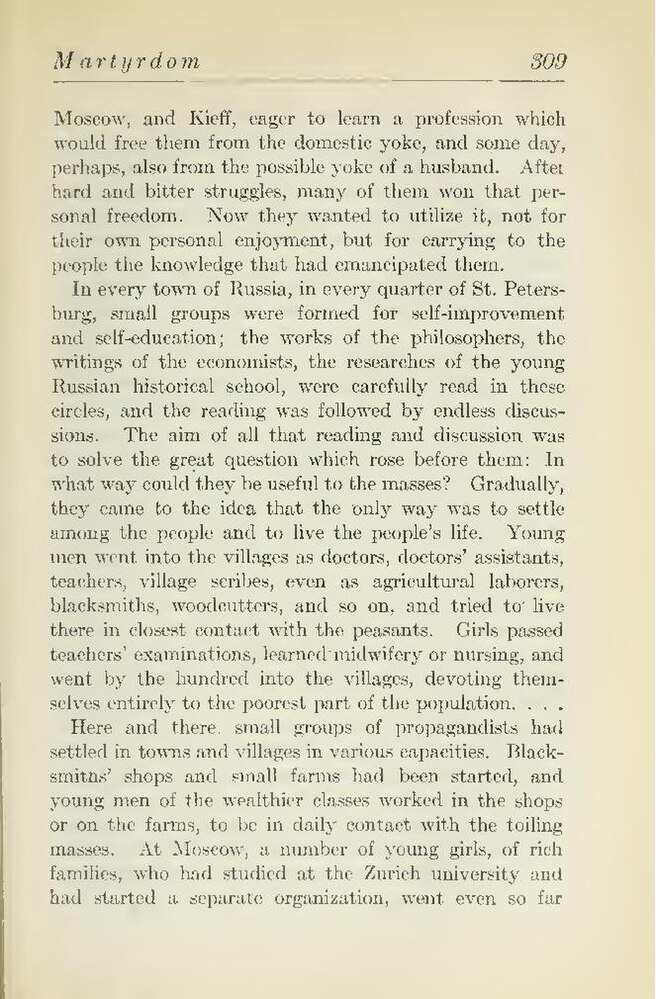Moscow, and Kieff, eager to learn a profession which would free them from the domestic yoke, and some day, perhaps, also from the possible yoke of a husband. After hard and bitter struggles, many of them won that personal freedom. Now they wanted to utilize it, not for their own personal enjoyment, but for carrying to the people the knowledge that had emancipated them.
In every town of Russia, in every quarter of St. Petersburg, small groups were formed for self-improvement and self-education; the works of the philosophers, the writings of the economists, the researches of the young Russian historical school, were carefully read in these circles, and the reading was followed by endless discussions. The aim of all that reading and discussion was to solve the great question which rose before them: In what way could they be useful to the masses? Gradually, they came to the idea that the only way was to settle among the people and to live the people's life. Young men went into the villages as doctors, doctors' assistants, teachers, village scribes, even as agricultural laborers, blacksmiths, woodcutters, and so on, and tried to live there in closest contact with the peasants. Girls passed teachers' examinations, learned midwifery or nursing, and went by the hundred into the villages, devoting themselves entirely to the poorest part of the population. . . .
Here and there, small groups of propagandists had settled in towns and villages in various capacities. Black-*smiths' shops and small farms had been started, and young men of the wealthier classes worked in the shops or on the farms, to be in daily contact with the toiling masses. At Moscow, a number of young girls, of rich families, who had studied at the Zurich university and had started a separate organization, went even so far
